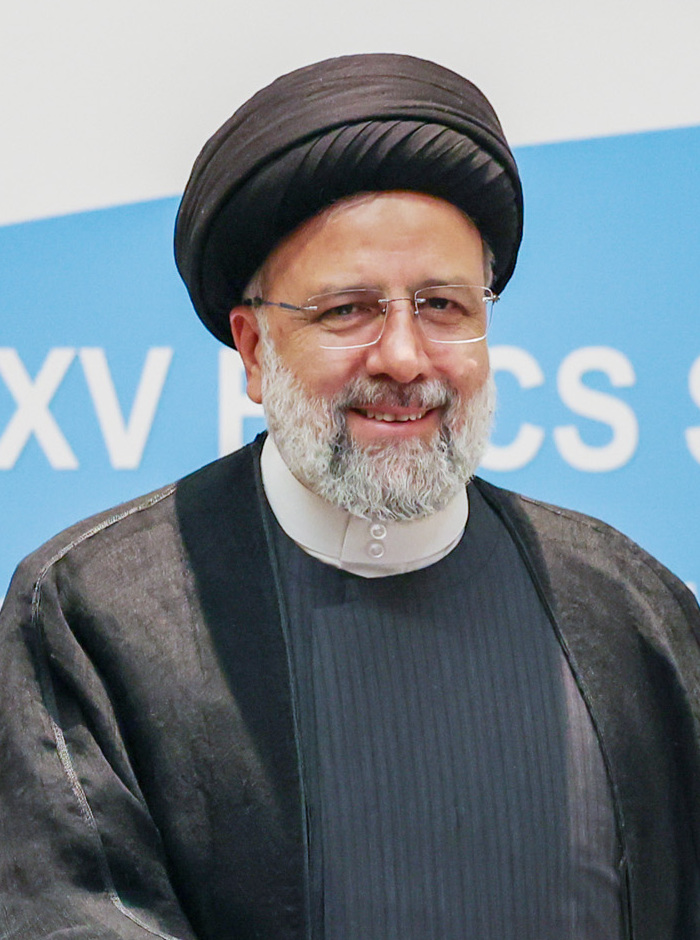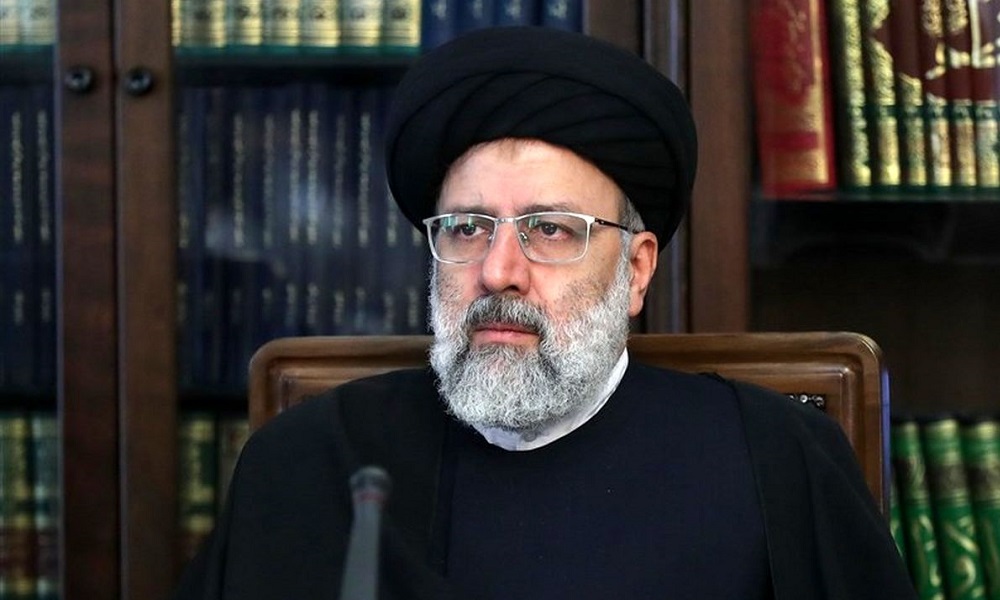Ebrahim Raisi Age: Ebrahim Raisi
We know that, Ebrahim Raisi is 60 years old. He was born on December 14, 1960, in Mashhad, Iran.
Raisi, a prominent Iranian conservative politician and jurist, currently serves as the President of Iran. With a background in the judiciary, Raisi has held various positions within the Iranian government. His election as president in 2021 marked a significant milestone in Iranian politics.
Raisi's leadership is closely watched both domestically and internationally, as he navigates the country through various economic and geopolitical challenges. His presidency is expected to shape Iran's trajectory in the coming years.
Ebrahim Raisi's Early Years
Ebrahim Raisi, the seventh President of Iran, has had a remarkable journey that has shaped his leadership and vision for the country. His early years played a crucial role in shaping his character and values, paving the way for his future endeavors.
Birth And Childhood
Ebrahim Raisi was born on December 14, 1960, in the city of Mashhad, Iran. His childhood was marked by a strong sense of community and traditional values, instilled in him by his family and the environment in which he was raised. Growing up in a modest yet nurturing household, he developed a deep appreciation for the cultural and historical richness of his homeland.
Education And Formative Influences
Raisi's pursuit of education led him to the holy city of Qom, where he immersed himself in the study of Islamic jurisprudence and theology. His formative years were greatly influenced by his religious education and the teachings of prominent scholars, which laid the groundwork for his deep understanding of religious principles and their application in governance.

Credit: en.wikipedia.org Ebrahim Raisi
Climbing The Political Ladder
Ebrahim Raisi's journey to political prominence has been marked by his steady climb up the ranks of Iran's judiciary. From his early beginnings in the legal field to his rise to prominence as a key figure in Iranian politics, Raisi's career trajectory reflects his unwavering dedication and ambition.
Judicial Career Beginnings
Ebrahim Raisi began his career in the judicial system in the early 1980s, establishing a strong foundation in the legal field. His commitment to upholding the rule of law and ensuring justice for all propelled him into various roles within the Iranian judiciary.
Rise To Prominence
Raisi's ascent to prominence within the judicial realm was marked by his diligent efforts and commitment to upholding the principles of the legal system. His steadfast dedication and expertise led to his appointment to key positions of authority, solidifying his status as a prominent figure within the Iranian judiciary.
Presidential Ascent
At the time of his Presidential Ascent, Ebrahim Raisi's age has been a topic of interest, with him being born in 1960. His relatively younger age brings a fresh perspective to Iranian politics.
Campaign Trail
At the age of 60, Ebrahim Raisi made his way to the campaign trail, ready to compete for the Iranian presidency in 2021. He was a relatively new face in the political arena, but his background as a judge and prosecutor made him a formidable candidate. Raisi's campaign focused on tackling corruption and promoting social justice, which resonated with many Iranians who were dissatisfied with the current economic situation.
Election Victory
Despite facing several other candidates, Ebrahim Raisi emerged victorious in the 2021 Iranian presidential election. He won with more than 60% of the vote, earning him a decisive victory. His supporters were jubilant, while his opponents expressed concern about what his presidency would mean for the future of the country. Raisi's inauguration is set for August 2021, and Iranians are eager to see what changes he will bring to the country. In conclusion, Ebrahim Raisi's ascent to the presidency is a remarkable achievement, given his relatively short political career. His campaign and election victory have generated both excitement and concern among Iranians, and it remains to be seen what his presidency will bring. Nevertheless, Raisi's age and experience as a judge and prosecutor have positioned him as a leader who is capable of bringing about change in a country that is in need of it.
Policies And Ideologies
Ebrahim Raisi, at the age of 60, is a prominent figure in Iranian politics, known for his conservative and hardline stance. His policies and ideologies have garnered attention both domestically and internationally.
Domestic Policy Overview
Raisi has emphasized social justice and economic self-sufficiency, aiming to address the concerns of the lower-income population. His focus on combating corruption and promoting a strong welfare state has been central to his domestic policy agenda.
Foreign Relations Stance
Raisi advocates for a foreign policy that prioritizes national interests and sovereignty. He has expressed support for strengthening ties with neighboring countries and expanding diplomatic relations with global powers. Raisi's approach underscores the importance of protecting Iran's security and asserting its influence in the region.
Raisi's Impact On Iranian Society
Ebrahim Raisi, at the age of 60, has had a significant impact on Iranian society, particularly in the realms of economic changes and social and cultural influence. His leadership has shaped various aspects of Iranian life, touching upon the economy, social dynamics, and cultural expressions.
Economic Changes
The economic policies introduced by Raisi have aimed to address key issues such as unemployment, inflation, and economic inequality. His emphasis on bolstering domestic industries and reducing reliance on imports has sought to strengthen Iran's economic independence. Raisi's administration has implemented measures to support small and medium-sized enterprises, fostering a more robust entrepreneurial ecosystem. Additionally, initiatives to enhance agricultural productivity have contributed to food security and rural economic development.
Social And Cultural Influence
Raisi's tenure has witnessed a renewed focus on preserving and promoting Iran's cultural heritage. Efforts to safeguard historical sites and support traditional crafts have been prioritized, aiming to uphold Iran's rich cultural legacy. Furthermore, social welfare programs have been expanded to ensure the well-being of vulnerable segments of society, including women, children, and the elderly. Raisi's administration has also encouraged public engagement in cultural activities, fostering a sense of community and national pride.

Credit: en.wikipedia.org Ebrahim Raisi
Controversies And Criticisms
Controversies and criticisms surround Ebrahim Raisi's age, with some questioning its impact on his leadership abilities. Skeptics argue that his relatively young age may lack the experience needed for such a high-profile role.
Ebrahim Raisi, the current President of Iran, has been at the center of various controversies and criticisms. Some of the most significant ones are related to human rights issues and opposition voices. Let's take a closer look at these issues.
Human Rights Issues
Raisi's record on human rights issues has been a topic of concern for many international organizations. During his tenure as the head of the Iranian judiciary, Raisi oversaw the execution of thousands of political prisoners, including juveniles. He has also been accused of involvement in the 1988 mass execution of political prisoners, which is considered one of the worst human rights abuses in Iran's history. Furthermore, Raisi has been criticized for his views on women's rights. He has publicly opposed the UN Convention on the Elimination of All Forms of Discrimination Against Women (CEDAW), arguing that it contradicts Islamic law. This stance has raised concerns among human rights advocates, who fear that women's rights in Iran may be further restricted under his leadership.
Opposition Voices
Raisi's rise to power has been marked by a crackdown on opposition voices. Since he took office in August 2021, there have been reports of increased censorship and arrests of journalists, activists, and dissidents. This has led to concerns that Raisi's presidency may be characterized by further restrictions on freedom of expression and assembly. In addition to this, Raisi has been accused of involvement in the suppression of peaceful protests in Iran. In 2019, he served as a member of the Supreme National Security Council, which was responsible for the violent crackdown on nationwide protests that left hundreds dead and thousands injured. In conclusion, Raisi's presidency has been marked by controversies and criticisms related to human rights issues and opposition voices. While it is too early to predict the long-term implications of his leadership, it is clear that his record on these issues will continue to be closely scrutinized by the international community.
Leadership Style And Public Perception
Ebrahim Raisi, at the age of 60, is known for his distinctive leadership style and the varied public perception it has evoked. His approach to governance, public and international views, and overall leadership style have been subjects of significant interest and analysis.
Governing Approach
Raisi's governing approach is characterized by a strong emphasis on promoting social justice and economic development. He has shown a commitment to addressing the needs of the underprivileged and creating opportunities for all segments of society.
Public And International Views
Public Perception: Raisi has garnered mixed public perception, with some viewing him as a steadfast and principled leader, while others have expressed concerns about his stance on human rights and civil liberties.
International Views: Internationally, Raisi's leadership has been met with varying degrees of scrutiny and interest, particularly in relation to Iran's foreign policy and diplomatic relations with other nations.

Credit: iran1988.org
Legacy In The Making
Ebrahim Raisi, at 60 years of age, is poised to leave a significant mark on Iran's political landscape. His legacy is still in the making, but it's essential to consider the historical significance and potential long-term effects of his leadership.
Historical Significance
Ebrahim Raisi's rise to power at this pivotal moment in Iran's history holds immense historical significance. As the president, his actions will be closely scrutinized, and his decisions will undoubtedly shape the country's future. His background as a judiciary chief and experience in various political and legal roles have positioned him as a significant figure in Iran's history.
Potential Long-term Effects
The presidency of Ebrahim Raisi could have far-reaching implications for Iran and the international community. His policies and actions will likely influence the country's domestic affairs, foreign relations, and economic stability. As he navigates complex geopolitical challenges, his leadership may set the course for Iran's trajectory in the years to come.
Frequently Asked Questions
- Does Ebrahim Raisi Have Kids?
Yes, Ebrahim Raisi has children.
- Who Was Before Raisi?
Before Raisi, Hassan Rouhani was the President of Iran.
- How Long Does The Supreme Leader Of Iran Serve?
The Supreme Leader of Iran serves for life.
- What Happened To Mahmoud Ahmadinejad?
Mahmoud Ahmadinejad has largely withdrawn from politics since his presidency ended in 2013.
Conclusion
To sum up, Ebrahim Raisi's age is a topic of interest worldwide. Understanding his background and experience is key to comprehending his leadership style. As a prominent figure in Iranian politics, Raisi's age brings a unique perspective to the global stage. Thanks.



.webp)

